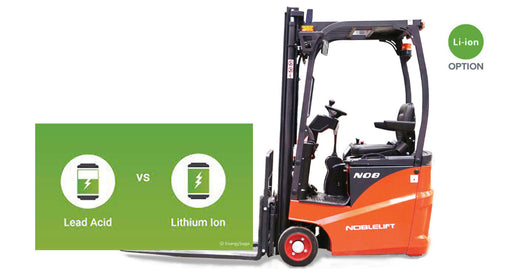
Revolutionizing Material Handling in Canada with Lithium Battery-Powered Equipment
Share
In the dynamic landscape of material handling, Canada is embracing a transformative shift powered by advanced technology, and at the forefront of this revolution is the adoption of lithium battery technology. These powerful and efficient energy sources are reshaping the way businesses manage their material handling equipment, offering a myriad of benefits that contribute to increased productivity, sustainability, and cost-effectiveness.
Lithium batteries have emerged as a game-changer, replacing traditional lead-acid batteries in material handling equipment across Canada. One of the key advantages lies in their longer lifespan, enabling businesses to reduce downtime and maintenance costs. Unlike their predecessors, lithium batteries boast an extended cycle life, ensuring reliability and longevity, ultimately resulting in a significant return on investment for companies investing in this innovative technology.
Moreover, lithium batteries contribute to a more sustainable future by reducing the environmental impact of material handling operations. With no harmful chemicals or emissions, these batteries align with Canada's commitment to eco-friendly practices and serve as a catalyst for a greener supply chain. As the country strives to meet its sustainability goals, the adoption of lithium battery-powered equipment becomes a pivotal step towards achieving a more carbon-neutral and environmentally responsible industry.
The efficiency gains associated with lithium battery technology are another driving force behind its widespread adoption. Quick recharge times and consistent power output enhance operational efficiency, ensuring seamless material handling processes. This, in turn, leads to increased throughput, reduced idle time, and improved overall warehouse performance.
Furthermore, the compact and lightweight nature of lithium batteries allows for more streamlined material handling equipment designs. This not only optimizes space utilization within warehouses but also enhances maneuverability, making it easier for operators to navigate through tight spaces and efficiently manage inventory.
In conclusion, the integration of lithium battery-powered material handling equipment in Canada marks a significant leap forward for the industry. As businesses seek to enhance efficiency, reduce environmental impact, and stay ahead of the technological curve, lithium batteries are proving to be an invaluable asset in the evolution of material handling practices across the nation.
